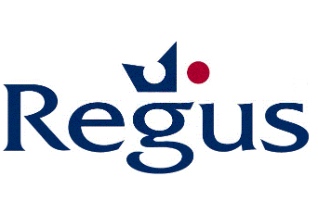Never far from the headlines, Regus caused a stir in The City this morning when it announced an aggressive expansion drive, with plans to open a total of 450 business centres this year.
Raising its previous target of 300, this impressive figure nevertheless hit shares as it materialised that the firm’s additional plans would set full-year profits back considerably. According to Mark Dixon via Reuters, new Regus centres take 16 to 18 months to break even and approximately two years to be fully established.
Sound familiar? OT reported on a very similar story last year, when Regus’ share value dropped following a massive shopping spree. But that didn’t dent the brand’s growth commitment, and it won’t this time either.
Regus cites increased demand as the main reason for stepping up its expansion plans, which it says is coming chiefly from technology clients as well as corporate firms. It’s currently home to FTSE 100 companies and household names like Google, Toshiba and GlaxoSmithKline.
Traditional business centres aren’t the only locations falling under the expansion spotlight. Regus is targeting the transport network as part of its drive for more ‘third place’ workspaces, having just launched at Heathrow Airport’s Terminal 5. It’s also rolling out a spate of hubs including 12 more Roadchef locations.
African focus
Reports suggest that at least 10% of new Regus centres will be in Africa, from where it has reportedly seen the highest level of growth in percentage terms.
During the past six months Regus has opened workspaces in Botswana and Namibia, which join an existing portfolio based in Ghana, Ivory Coast, Kenya, Madagascar and Nigeria, among others.
Its newest business centre is in Mozambique – a first for Regus – at Edificio Millennium Park in Maputo, in what the company describes as a “high-opportunity” location. Indeed, Dixon cites sub-Saharan Africa as “the world’s next major economic success story”.
In its Emerging Markets report released last year, Instant found that the serviced office market in Africa grew by 19% between 2011 – 2013.
And while it refers to the African market as “challenging”, both for companies setting up a business and operators seeking buildings of an acceptable standard, Instant suggests there is potential for development. It refers to the market in Africa having “matured” in recent years, with rising demand for workspace in the West, North and East of Africa.
For business centre operators, Regus’ latest expansion news won’t come as a surprise. The question is, where next? And will your centre be in direct competition?



 Dr. Gleb Tsipursky – The Office Whisperer
Dr. Gleb Tsipursky – The Office Whisperer Nirit Cohen – WorkFutures
Nirit Cohen – WorkFutures Angela Howard – Culture Expert
Angela Howard – Culture Expert Drew Jones – Design & Innovation
Drew Jones – Design & Innovation Jonathan Price – CRE & Flex Expert
Jonathan Price – CRE & Flex Expert











